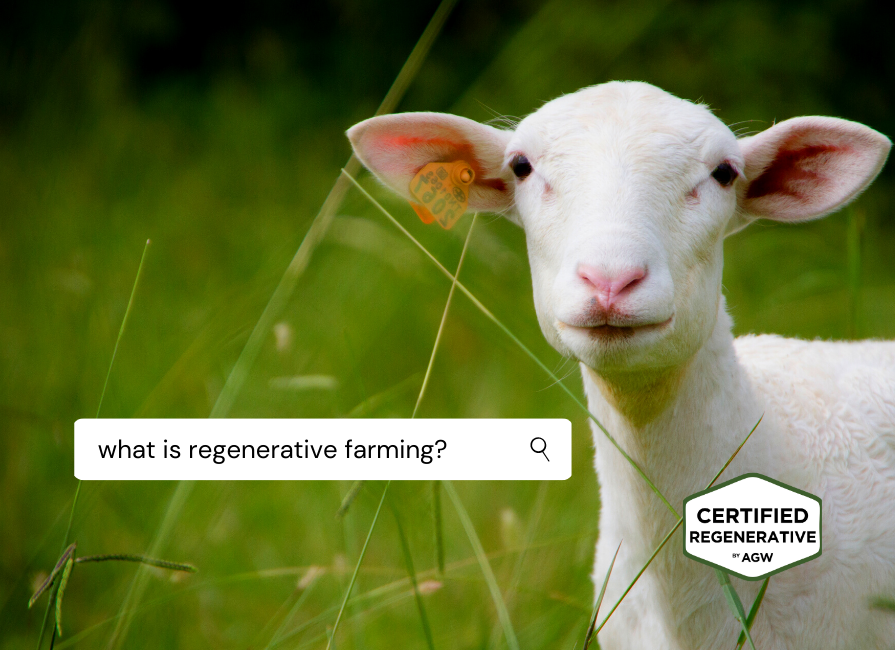Looking for a little inspiration in the kitchen? Whether you’re preparing food for a crowd…
More Bad Science: Ground Beef from Grainfed Cattle Healthier than Grassfed. Fact or Fable?
 At the recent Council for Agricultural Science and Technology symposium there seemed to be a consensus that folks didn’t trust science. Now, as some of you might know from my previous blogs (see “Beware of Bad Science”), one of my pet peeves is deceit and spin being masqueraded as real science. I believe that this practice is helping to undermine the vital role that science has to play in our lives, and is a key reason why more and more people don’t trust scientists.
At the recent Council for Agricultural Science and Technology symposium there seemed to be a consensus that folks didn’t trust science. Now, as some of you might know from my previous blogs (see “Beware of Bad Science”), one of my pet peeves is deceit and spin being masqueraded as real science. I believe that this practice is helping to undermine the vital role that science has to play in our lives, and is a key reason why more and more people don’t trust scientists.
On May 27, 2010, AgriLife Communications posted a press release which appears to refute claims that grassfed beef is healthier than grainfed beef. But the shocking lack of academic rigor behind this seemingly important press release demonstrates to me exactly why people are losing their faith in science.
This press release, entitled “Study shows ground beef from grainfed cattle healthier than grassfed,” claims to highlight new research by Dr. Stephen Smith, a Professor of Meat Science at AgriLife Research, a member of the Texas A&M University System. The background is that Dr. Smith was paid by the National Cattlemen’s Beef Association to look at the potential effects of eating grassfed or grainfed beef on cholesterol levels.
As Dr. Smith’s report runs counter to many people’s understanding of grassfed beef and its potential health benefits, it’s not surprising that it gained widespread media coverage. Indeed, many websites and blogs have repeated the AgriLife press release word for word. At AWA, however, we don’t simply copy and paste our news stories. We make a point of ensuring that the information we provide is based on up-to-date, proven, peer-reviewed science or published reports. And as we have a large number of grassfed farmers in our program we felt that a report stating that beef from grainfed cattle was healthier than grassfed warranted further investigation.
As we do with all news items, we sought to confirm the authenticity of the report by returning to Dr. Smith’s original study and reviewing its findings. Unfortunately, in this instance, our technical team could not find any references for the reported study. So we contacted Dr. Smith directly on June 6, 2010 to request further details. As we didn’t get a response, we sent another e-mail to Dr. Smith on June 9, asking for further information–this time copying the report’s co-author, Dr. Rosemary Walzem. Again, no response.
Concerned that we were being ignored, on June 14 we contacted the Dean of the College of Agriculture and Life Sciences at the Texas A&M University, asking for his help in resolving the issue. To our surprise, we received no reply to this letter either. Just to cover all bases, we contacted the National Cattleman’s Beef Association, which funded the work, to ask if they had a copy of the study. You guessed it: complete silence.
Then, curiously, just as the publication deadline for this blog passed, a letter arrived from Dr. Smith, addressed not directly to our technical team, but to “whom it may concern.” This letter was dated nine days after our first request, but not actually sent until 11 days after the first request and, interestingly, after our e-mail to the Dean.
There are several striking points about this response. Perhaps the most concerning is the fact that it was addressed “to whom it may concern.” Together with some of the other content, this clearly shows that we were not the only people chasing down the real facts of the matter. Other key points are just how many people we had to ask before we got a reply and, of course, the lack of any real weight to the final response. If, as Dr. Smith suggests, the report is heading for a peer review and publication in a recognized scientific journal then I know a couple of nutritionists who would love to review it.
In the letter itself, Dr. Smith refers to a previous piece of research, British Journal of Nutrition, 103:91-98, 2010, which is puzzling in so much as all the ten individuals involved in that study had high cholesterol before the work started, and the diet during and between the trials appears to have been unsupervised. In other words, apart from the few burgers a week that they were required to eat by the trial, there isn’t much detail on what else the ten people ate during the trial. And, yes, that wasn’t a typo: only TEN people took part in this earlier study. In any event, this previously published piece is not overly relevant to the fire storm caused by what appears to be the premature reporting of a study awaiting review.
So what’s the problem? Surely a report wouldn’t have been written and presented at conferences unless it had been reviewed and validated. Well, without seeing the full study we can’t tell you. But what we can tell you is that significant conclusions are being drawn – and publicized in the media – from a study that only included 27 people who ate burgers for only five weeks at a time. We contacted other researchers with expertise in carrying out nutritional trials and the bottom line is that this number of subjects simply isn’t enough to produce any meaningful results.
Aside from the issue of a very small sample size, there are also many unanswered questions about this supposed scientific research. The original AgriLife news release reports that the 27 volunteers ate five 115g burgers a week for each five week trial. Now, we don’t think it’s unrealistic to say that the individuals taking part in the trial probably ate other food as well during the five-week period – but what other food did they eat? Could this other food have affected the results of the blood tests? And what about the health status and initial cholesterol results of the volunteers? Were some of them particularly high or low? We just don’t know.
The press release states that the work was carried out because there was a lack of research on the health effects of grassfed versus grainfed beef. We would beg to differ on this point. Without this news report, and based on what is already published, we know that the science shows that grassfed products are far healthier for you than grainfed, as grassfed products contain higher levels of vitamin E and omega 3. Grassfed beef is also safer. As we have previously reported aside from the extra vitamins and omega 3, grassfed beef is unlikely to be carrying E coli 157 – sadly not something you can say of all grainfed, feedlot beef.
The title of this blog is “More Bad Science: Fact or Fiction” but at the moment we can’t even say if this report is science at all. At AWA we welcome all research that contributes to the debate around grassfed versus grainfed beef. But it must be credible research, not just fairy tale stuff.
Sorry guys, but it’s time to put up or shut up if you want consumers to believe your science. Make sure your science is unbiased, accurate and, in this case, that it actually exists. Maybe I don’t have a Ph.D in nutrition, but I have trusted friends who do, and I do have a healthy cynicism for deceit and spin. I look forward to reading this study that, according to Dr. Smith, is awaiting review and publication. But until then I’m afraid I’ll be sticking to what we already know, and which is backed up by peer reviewed, published science: grassfed beef really is better for you than grainfed. I hope all the pro-feedlot folks who naively promoted this unpublished, un-reviewed report with banner headlines will offer their grassfed friends an apology for not checking their sources – and will improve their journalistic practices in the future.
As I have said before, I believe that sound science is a key to the future, but only in the hands of ethical scientists. We need to expose these shameless media stunts and the bad science they promote. Only then will consumers once again have confidence in the many great and revered scientists who are working tirelessly to make the world a better, more sustainable place.
Chronology
Initial e-mail to Dr. Smith: June 6, 2010
Follow up e-mail to Dr. Smith and Dr. Walzem: June 9, 2010
E-mail to the Dean of Agricultural Sciences: June 14, 2010
E-mail to Bethany Shively, National Cattlemen’s Beef Association: June 18, 2010
E-mail from Dr Smith: June 18, 2010



